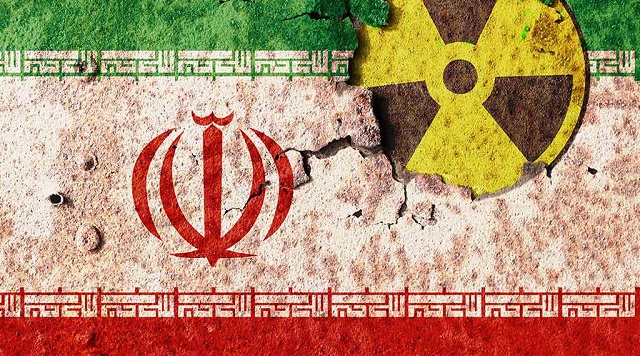Do The Iranians Already Have Nukes?

The most critical question to ask in the world of intelligence is “Why?”.
Iran is in a confrontation with U.S. forces in the Middle East. Three U.S. servicemen in Jordan were just killed in a missile attack staged by Iranian surrogates. At least 34 others were wounded, and eight were evacuated in critical condition. Iranian media is now making a big deal of playing up the recent night-time launch of a satellite launch vehicle and the placement of three indigenously designed satellites in orbit.
Why?
Why is Iran continuing to push the envelope with escalating attacks on U.S. forces?
Why do they seem unconcerned about provoking the United States?
Why is the launch of a handful of satellites something so important and something that had to happen right now?
Is it possible the “launch vehicle” in question has another purpose?
The satellites Iran says it placed in orbit were launched on a Simorgh rocket. U.S. intelligence has pointed out for years that this missile could potentially be aimed at improving and enhancing Iran’s ballistic missile capability. This launch may, therefore, have nothing really to do with the peaceful use of space and be part of an effort to develop true intercontinental ballistic missiles (ICBMs).
But, here’s the real kicker. An ICBM carrying a conventional warhead is close to useless. It would be a very expensive, incredibly complex way of delivering what in the end would be the equivalent of a single bomb. It might kill a limited number of people. It might severely damage multiple buildings. It would not be capable of doing much more than that.
The only rational strategic military use of an ICBM is to deliver a nuclear warhead.
What then might the sudden rush to push the development of the Simorgh missile tell us about where Iran stands on its nuclear program? Might it be strong evidence that the Iranians, in fact, already have nuclear weapons and are now finalizing the work necessary to be able to deliver those weapons to their targets?
That, unfortunately, is entirely possible.
Experts have been warning for some time that Iran has already passed the point of no return. They must now be considered to be a nuclear threshold state, and we must recognize that we no longer have the ability to prevent them from acquiring nuclear weapons.
The International Atomic Energy Authority (IAEA) has warned recently that Iran has ramped up its production of the highly enriched uranium needed to make atomic bombs.
David Albright, a former UN weapons inspector in Iraq, has gone further. He has warned that Iran could produce enough highly enriched uranium for 12 atomic bombs in a matter of months and already has the technical knowledge necessary to build nuclear weapons.
The head of the IAEA is also on record as having stated the obvious.
“There’s no other country other than those making nuclear weapons reaching those high levels” of uranium enrichment, Rafael Mariano Grossi said of Iran. “I’ve said many times that this doesn’t mean that Iran has a nuclear weapon. But it does mean that this level of enrichment is one that requires an intense verification effort.”
That was in 2021, and the implication was clear. No matter what the Iranians say, they are clearly developing nuclear weapons and intend to acquire them. The only question is when they will cross the line.
Step back for a moment and consider the events unfolding in the Middle East and add in for the sake of argument the assumption that the Iranians have nuclear weapons and are finalizing the details of how to deliver them. Does what you are seeing make more sense now? Rogue states all over the world have long since assimilated the implications of North Korea’s decision to acquire nuclear weapons. It means that the United States cannot even contemplate direct military action against Pyongyang for fear of a nuclear exchange. Even setting aside the possibility that the North Koreans may be able to hit the United States the devastation that North Korea could inflict on U.S. allies like South Korea and Japan is sobering. Washington dare not act toward Kim Jong Un as it did against Saddam and Qaddafi.
Now think about the aggressive nature of the actions of Iranian surrogates, the continued Houthi attacks in the Red Sea, and the calls by various Iranian officials for attacks inside the United States. Is what you are seeing simply a reflection of the weakness and compromise of the Biden administration or is something else afoot? Might we be inching closer to the day that the Iranians will announce they are in possession of a nuclear arsenal, they have the necessary delivery capability, and any actions against them will cross a “red line” and necessitate strikes on Tel Aviv, Riyadh and other key targets in the Middle East?
Watch the video of the recent “satellite” launch. Ask yourself “Why”. Ponder this question. Do the Iranians already have nucs?
Originally published by AND Magazine
AUTHOR
Sam Faddis
EDITORS NOTE: This Center for Security Policy column is republished with permission. ©All rights reserved.


Leave a Reply
Want to join the discussion?Feel free to contribute!